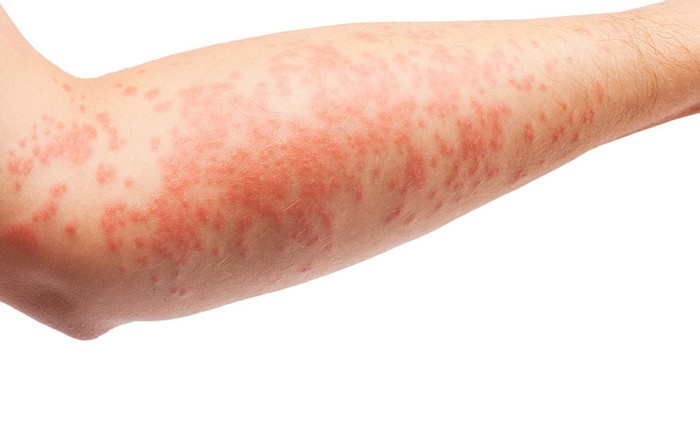Eczema, a common skin condition characterized by inflammation, itchiness, and redness, can be a persistent challenge for many individuals. While there is no definitive cure, managing eczema often involves a multifaceted approach that includes skincare routines, lifestyle adjustments, and dietary considerations. In recent years, researchers and healthcare professionals have paid increasing attention to the role of diet in managing eczema symptoms. Certain foods have been found to either exacerbate or alleviate symptoms, making dietary modifications a promising avenue for eczema sufferers. In this article, we delve into the science behind eczema-friendly foods, exploring how they can contribute to clearer, healthier skin.
Understanding Eczema and its Triggers
Before delving into specific foods, it’s essential to understand the underlying mechanisms of eczema. Eczema, also known as atopic dermatitis, is linked to an overactive immune response and impaired skin barrier function. Factors like genetics, environmental triggers, and a compromised immune system can contribute to the development and exacerbation of eczema. Common triggers include stress, allergens, irritants, and dietary factors.
When it comes to diet, certain foods can either trigger inflammation or support skin health. Individuals with eczema often have sensitivities to specific foods that can worsen their symptoms. Conversely, incorporating anti-inflammatory and nutrient-rich foods into one’s diet may help mitigate eczema flare-ups and promote skin healing.
Eczema-Friendly Foods to Incorporate
1. Omega-3 Fatty Acids
Omega-3 fatty acids are renowned for their anti-inflammatory properties, which can be beneficial for eczema sufferers. Cold-water fish like salmon, mackerel, and sardines are excellent sources of omega-3s. These essential fats help reduce inflammation throughout the body, including the skin. For those who prefer plant-based options, flaxseeds, chia seeds, and walnuts are rich in alpha-linolenic acid (ALA), a precursor to omega-3s.
2. Probiotics
Emerging research suggests a link between gut health and skin conditions like eczema. Probiotics, often referred to as “good” bacteria, play a crucial role in maintaining gut health and modulating the immune system. Foods like yogurt, kefir, sauerkraut, and miso are rich in probiotics. Regular consumption of these foods may help support a healthy gut microbiome, potentially reducing eczema symptoms.
3. Fruits and Vegetables
A diet rich in fruits and vegetables provides essential vitamins, minerals, and antioxidants that support overall skin health. Certain fruits like berries, oranges, and kiwis are high in vitamin C, which promotes collagen production and skin repair. Leafy greens such as spinach and kale are excellent sources of vitamin E and beta-carotene, which can help protect the skin from oxidative stress.
4. Quercetin-Rich Foods
Quercetin, a flavonoid with potent antioxidant and anti-inflammatory properties, has shown promise in reducing allergic responses associated with eczema. Foods like apples, onions, broccoli, and citrus fruits are rich in quercetin. Incorporating these foods into the diet may help calm eczema-related inflammation.
5. Foods Rich in Zinc
Zinc is an essential mineral that plays a vital role in skin health and wound healing. Studies have suggested that individuals with eczema may have lower levels of zinc in their bodies. Foods like oysters, beef, lentils, and pumpkin seeds are excellent sources of zinc. Including zinc-rich foods in the diet can support skin integrity and potentially alleviate eczema symptoms.
Foods to Avoid or Limit
While certain foods can benefit individuals with eczema, others may trigger or exacerbate symptoms. Common culprits include:
1. Dairy Products: Cow’s milk and dairy products can be problematic for some eczema sufferers due to lactose or casein intolerance.
2. Gluten: Wheat and gluten-containing grains can trigger inflammation in susceptible individuals. Consider exploring gluten-free alternatives like quinoa, rice, and buckwheat.
3. Processed Foods: High-sugar and processed foods can promote inflammation and may worsen eczema symptoms. Opt for whole, unprocessed foods whenever possible.
4. Allergens: Identify and avoid specific allergens that trigger eczema flare-ups, such as nuts, eggs, and shellfish.
The Importance of Individualized Approaches
It’s important to note that eczema triggers and dietary responses can vary widely among individuals. Some foods that benefit one person’s eczema may not necessarily work for another. Keeping a food diary and working closely with a healthcare provider or registered dietitian can help identify personal triggers and develop a tailored dietary plan.
Conclusion
Incorporating eczema-friendly foods into your diet can be a proactive step toward managing eczema symptoms and promoting skin health. While dietary changes alone may not cure eczema, they can complement other treatment strategies and contribute to overall well-being. By focusing on nutrient-dense, anti-inflammatory foods and avoiding common triggers, individuals with eczema can take charge of their health and work toward clearer, healthier skin.
Remember, individual responses to foods can vary, so it’s crucial to listen to your body and seek professional guidance when making significant dietary changes. With a holistic approach that encompasses skincare, lifestyle modifications, and a balanced diet, managing eczema can become more manageable and less intrusive in daily life. By prioritizing skin-friendly foods and adopting a mindful approach to nutrition, individuals with eczema can take positive steps toward improving their skin health and quality of life.
Related Topics:


























